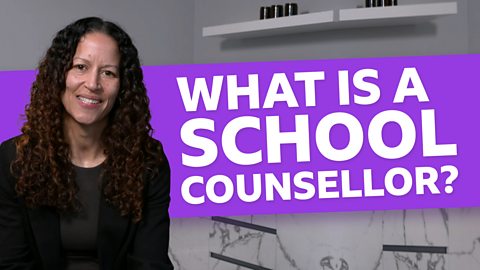If your child is struggling with emotional, behavioural or mental health difficulties, your child’s school or GP may discuss referring them to Child and Adolescent Mental Health Services (CAMHS).
To find out more about what CAMHS is, the services they offer and how they can support you and your child, we spoke to School Counsellor Catherine Mantack.
Catherine Mantack (school counsellor): Hi, my name is Catherine Mantack and I am a school counsellor.
VO: WHAT DOES CAMHS STAND FOR?
Catherine Mantack (school counsellor): CAMHS stands for Child and Adolescent Mental Health Services. CAMHS is a free NHS service that helps children and young people with emotional, behavioural, and mental health difficulties.
VO: WHAT CAN CAMHS DO FOR MY CHILD?
Catherine Mantack (school counsellor): CAMHS can help by understanding your child’s specific mental health needs and provide tailored treatment and support – from 1-on-1 counselling, to creative therapies. A CAMHS team is made up of psychologists, therapists, social workers, and other childcare professionals. Their support can help with a wide range of issues such as depression, anxiety, eating disorders, and self-harm.
VO: HOW DOES MY CHILD GET A REFERRAL to CAMHS?
Catherine Mantack (school counsellor): You can go to your child’s doctor or health care provider who can make a referral to CAMHS for you. This can also be made by your child's school, a social worker, or a youth worker with parental consent. There is also the possibility of a self-referral by parents or carers. The process of doing this differs depending on your location so it’s best to check the website of your local CAMHS or ask your local healthcare provider about this.
What does CAMHS stand for?
CAMHS stands for Child and Adolescent Mental Health Services. CAMHS is a free NHS service that helps children and young people with emotional, behavioural and mental health difficulties.
You may sometimes also come across the newer term Children and Young People’s Mental Health Services (CYPMHS), which is an umbrella term for all the mental health and wellbeing services, including local authorities and the voluntary sector, which support children and young people.
What can CAMHS do for my child?
CAMHS can help by gaining an understanding of your child’s specific mental health needs, and providing tailored treatment and support, from one-to-one counselling to creative therapies. A CAMHS team is made up of psychologists, therapists, social workers and other childcare professionals.
Their support can help with a wide range of issues such as:
- depression
- anxiety
- eating disorders
- neurodevelopmental conditions or disorders
- self-harming
- low self-esteem
- obsessions or compulsions
- sleep problems
- violent or angry behaviour
How does my child get a referral to CAMHS?
You can go to your child’s doctor or healthcare provider who can make a referral to CAMHS for you. A referral can also be made by your child’s school, a social worker or a youth worker, with parental consent. As a parent or carer, you can also self-refer your child. The referral process differs, depending on your location. For more information, via the NHS website or ask your local healthcare provider.
What happens after a CAMHS referral?
Once the referral is made, you’ll usually get a letter for a CAMHS appointment. Waiting times vary across the country and will depend on how urgent your child’s case is. According to the Care Quality Commission (CQC), young people with psychosis must be seen within two weeks. For those treated in the community for an eating disorder, first contact must be within 24 hours in an emergency, one week if urgent or otherwise four weeks. For other young patients, the CQC says no-one should wait more than 18 weeks for any treatment, although in some areas appointments are taking longer.
Five things you can do whilst waiting for CAMHS
- Keep talking with your child and continue life as normal as much as you can.
- Make sure you have all the correct contact details for the CAMHS team, and details of when and why the referral was made.
- Speak to CAMHS or your GP if your child’s symptoms get worse, as they may need to be seen more urgently.
- Use our Parents’ Toolkit Mental Health First Aid Kit for advice on what to do in different situations.
- Read YoungMinds to get more information.

Watch our film for guidance on what to do while waiting to access Child and Adolescent Mental Health Services.
The Â鶹ԼĹÄ has more information in this mental wellbeing collection as well as links to useful organisations on the Â鶹ԼĹÄ Action Line.

Parents' Toolkit
Fun activities, real-life stories, wellbeing support and loads of helpful advice - we're here for you and your child.

What can I do while my child waits for CAMHS?
Five things you can do whilst waiting to access CAMHS support, professional mental health services or help for children and young people.
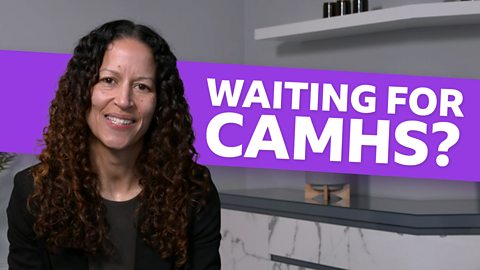
School anxiety and refusal: How to help your child get through tough times
Tips to help parents understand emotionally-based school avoidance and offer support to their child.
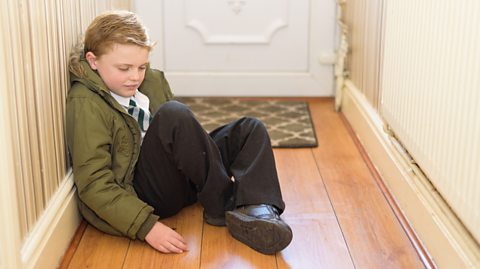
What is an EHC plan and how do I get one for my child?
Parents' Toolkit guide to a Education, Health and Care plan, how to get an EHC plan for your child and what to do if your child can’t get an EHC plan.
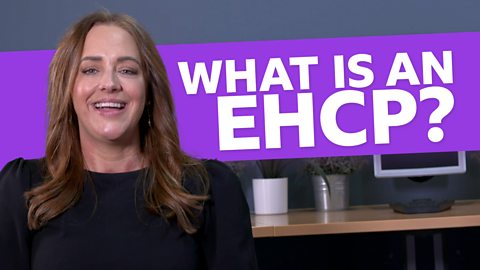
Mental health first aid kit for parents: Who to ask and what to do
Worried that your child needs help with their mental health? Here's how you can access professional help and support your child while you wait.
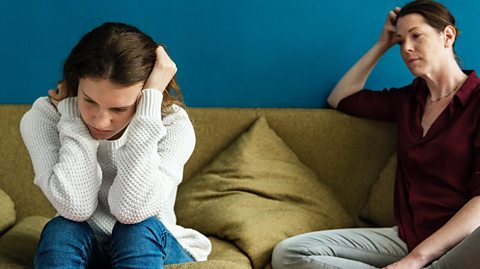
What is a school counsellor and how can they help my child?
Parents' Toolkit guide to what a school counsellor does and how they can help your child if they have been referred to a school counsellor.
